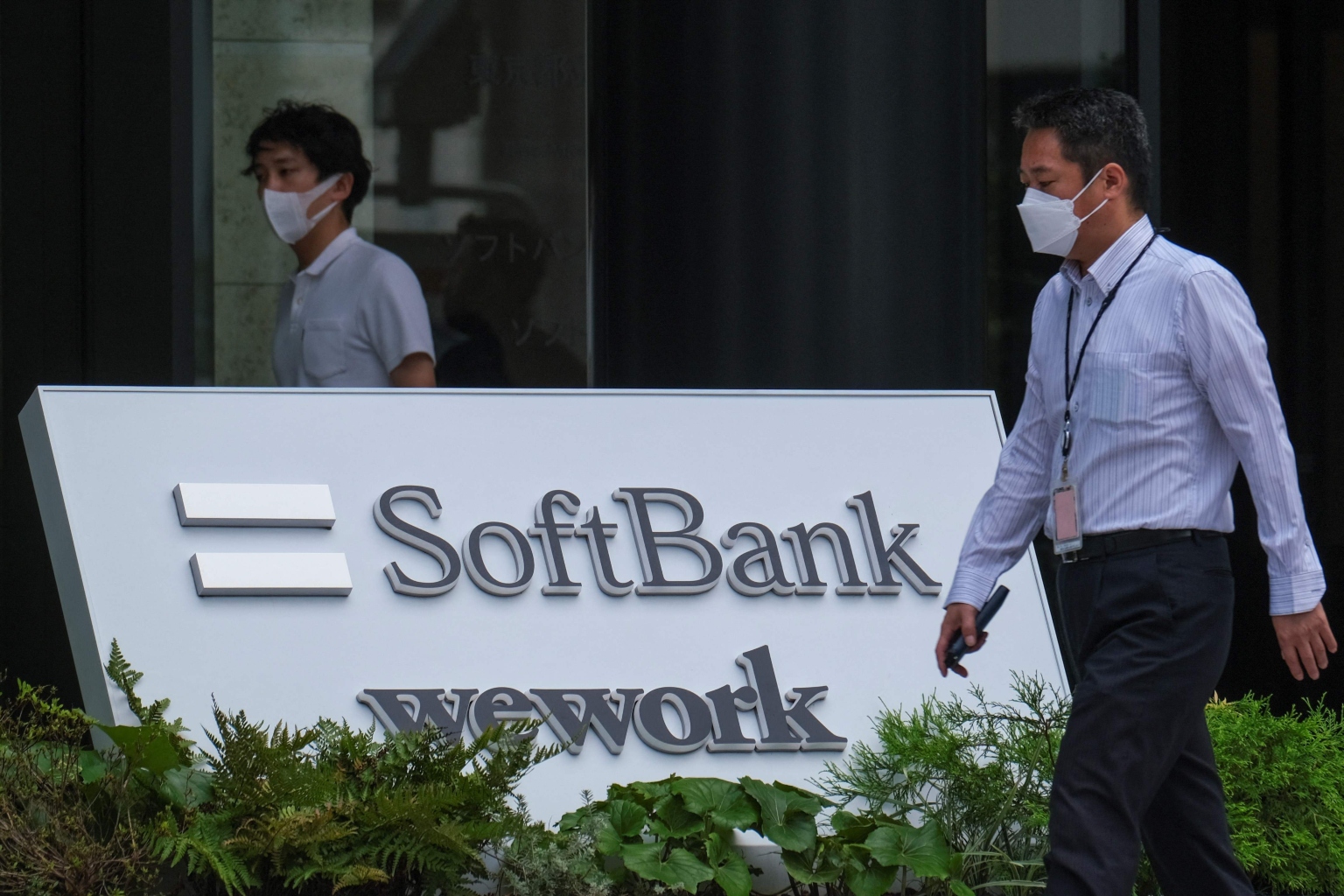SoftBank pledges sweeping cost cuts after $32.3 billion loss
Sign up now: Get ST's newsletters delivered to your inbox

SoftBank also reported a US$6.1 billion foreign exchange loss because of the weaker yen.
PHOTO: AFP
TOKYO (BLOOMBERG) - SoftBank Group founder Masayoshi Son said he plans widespread cost cutting at his Japanese conglomerate and its Vision Fund investment arm after a record US$23.4 billion (S$32.3 billion) loss on plunging portfolio valuations and foreign currency losses.
The company lost the vast majority of that money - US$17.3 billion - in the Vision Fund, as it marked down the value of holdings such as Coupang, SenseTime Group and DoorDash.
SoftBank also reported a US$6.1 billion foreign exchange loss because of the weaker yen.
The 64-year-old struck a darkly sombre tone after the results on Monday, taking responsibility for buying into start-ups at the height of the market and pledging to slash expenses to get back on track.
Mr Son said he will review "everything" for potential cuts without any "sacred cows".
SoftBank will scrutinise senior and junior employees in both front and back offices to an extent never experienced before.
"The loss is the biggest in our corporate history and we take it very seriously," Mr Son said during a press conference. "The cost-cutting efforts will have to include a reduction in head count - something I've made up my mind to do."
SoftBank shares fell as much as 3.2 per cent in Tokyo trading on Tuesday.
Mr Son detailed extensive problems and missteps in his portfolio, unusual for a self-made billionaire who tends to emphasise the positive.
He said SoftBank had marked down 284 companies in its portfolio in the latest quarter, while only 35 went up in value.
The markdowns included publicly traded portfolio companies, but also hundreds of private companies whose estimated values had dropped because of weak performance or lower comparisons.
"We really believed we could do it and we had our heads in the clouds," Mr Son said. "Of course, the market was bad, there was a war, and there was the coronavirus. We can point to a lot of reasons, but these are all excuses. We have to self-reflect about the fact that if we'd been more selective and had invested more properly, it wouldn't come to this."
Asked about what lessons he has learned from the experience, Mr Son said, "There are too many to count."
With the first Vision Fund, Mr Son said he was trying for home runs and struck out with companies like WeWork.
In Vision Fund 2, he tried a more modest approach of getting on base, but valuations were too high. Now, he will sharply scale back.
"We're currently strictly suppressing new investments," he said.
SoftBank approved about US$600 million in investments in the June quarter, compared with US$20.6 billion a year earlier.
Mr Son also said SoftBank has begun talks to sell asset manager Fortress Investment Group.
It bought Fortress for US$3.3 billion in 2017, but it had to cede day-to-day control of the company to win US approval of the deal.
SoftBank is also selling part or all of its 9 per cent stake in digital personal finance company SoFi Technologies.
To bolster SoftBank's share price, Mr Son unveiled a fresh programme to buy back as much as 400 billion yen (S$4 billion) of its own stock. The company has turned to such repurchases repeatedly in recent years, including a 1 trillion yen programme announced in November.
Mr Son is facing perhaps the steepest challenges of his career and he is taking more of the responsibility on his own shoulders. Chief operating officer Marcelo Claure left earlier this year, while chief strategy officer Katsunori Sago resigned last year.
Mr Rajeev Misra, long-time head of the Vision Fund, is stepping away from most of his responsibilities and will start his own investment fund.
Mr Son said he will take over as chief executive of the second Vision Fund.
Mr Son, known for his eccentric presentations, began the press conference by showing an illustration of Tokugawa Ieyasu, one of the heroic figures in Japanese history.
The image, however, shows the warrior after a defeat in battle, grim and dejected. Mr Son said he was going to look at the image of the shogun-to-be to force himself to learn from his mistakes.
"I'm sorry what we shared today was depressing," he said near the end of the event. "I wanted to be honest and transparent."


